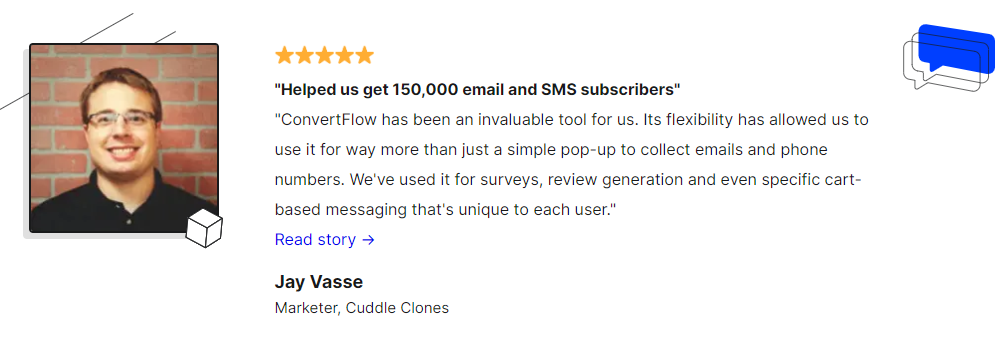Several parameters and dimensions are involved in determining if a product page is top-performing or not. Some of them are:
✅Conversion rate
✅Cart abandonment rate
✅Add to cart rate
✅Average order value
✅Time spent on page
All the above-listed parameters will hold true for top-performing pages. But, how do businesses achieve the conversion rate that makes them a top-performing page? Let’s discover some secrets applicable to every high-performing product page. Read on to understand how you can apply the same strategies for continuous success.
High-quality product images and videos

Images are the first impression creators for someone visiting your product page. If they are satisfied with the close-to-life image of the product, they are more likely to click the “Add to cart button.” This emphasizes the need to have high-quality visuals on the product page. This is the reason why businesses with top-performing product pages always invest in two things:
- Creative product photoshoots: Images that capture every detail, texture, and nuance to provide a complete view of the product
- Professional product photo editing: Polishing photos to make them catalog-worthy using various techniques such as color correction, background removal, shadow addition, and blemish removal

Example of a product photo edited by professionals. Source: Amazon
Captivating images can directly boost the conversion rate by:
- Creating the perfect first impression
- Making it easier for potential buyers to understand what to expect
- Building trust among shoppers
- Creating a sense of professionalism from the seller’s end
Trust badges
Including elements on a product page that can instill confidence in the customers can be one of the best ways to reassure visitors about the legitimacy and reliability of a business.
Before making an online purchase, shoppers usually make sure that the business is legitimate and the transactions are secure. Top-performing product pages display trust badges to build trust among online shoppers and increase sales and conversion rates. Some commonly used trust badges are:
✅Security trust badges (SSL certificates like Flywheel or Cloudflare)
✅Secure payment badges (Verified by VISA, Paypal Verified)
✅Endorsement badges (Google trusted store, BBB)
✅Policy-specific badges(Free shipping, Easy return, Money-back guarantee)
Reviews and testimonials
Statista reports that nearly 70% of consumers read at least six reviews before finalizing their purchase decision.
eCommerce businesses aim to gain the customer’s trust by collecting as many reviews as possible. But, not all reviews hold equal weight. It’s the quality of customer reviews that sets successful product pages apart. According to Gartner, there are four factors that constitute an exceptional review:
- Specificity: Reviews should delve into product details and highlight the features that resonated with the reviewer, as well as any aspects they found lacking.
- Verification: Bolster the credibility of the review by including the customer’s name, job title, and confirmation of their purchase status.
- Impartiality: It’s imperative to ensure that reviews are devoid of any underlying agendas or biases, as these can compromise the integrity of the evaluation.
- Freshness: Always try to add fresh reviews that should not surpass a six-month timeframe.

A review that’s specific, convincing, and trustworthy. Source-ConvertFlow
There are a variety of methods through which you can solicit reviews from your clientele:
Directly request reviews: Encourage your customers to share their experiences by asking them for feedback.
Utilize email follow-ups: Engage your customers through follow-up emails, inviting them to provide their insights.
Provide incentives: Offer incentives or rewards for customers who take the time to leave a review, demonstrating your appreciation for their input.
Employ surveys: Pose review-generating questions through surveys and allow customers to express their opinions in a structured format.
By adhering to these principles and employing effective review-gathering techniques, you can make your product reviews more reliable and trustworthy.
Audience understanding
One of the reasons why a product page has a good conversion rate is having the right kind of traffic on the page. By understanding your audience’s preferences, you can optimize your content and keywords to attract visitors who are actively seeking what you offer.
For example: If you are selling athletic footwear, you can optimize your content that resonates with avid runners, fitness enthusiasts, and athletes. Strategic optimization of the product page for long tail keywords like ‘high-performance running shoes’ and ‘cross-training sneakers’ will attract quality traffic and provide a boost in the conversion rate.
Optimized product page copies
The words you choose to describe your product can make all the difference in whether a visitor converts into a customer. Here are some essential strategies to consider when crafting compelling product page copy:
1. Title and product descriptions
The title is the first thing a potential customer reads. It should be clear, concise, and evoke interest. Consider title examples of a fitness tracker:
Generic Title: “Fitness Tracker”
Specific Title: “Your ultimate partner in achieving your fitness goals, one step at a time.”
When it comes to product description writing, focus on benefits over features. Describe how the product solves a specific problem or fulfils a particular need. For example:
Feature: “10-Day Battery Life”
Benefit: “Get 10 days of uninterrupted progress tracking. No need to worry about constantly recharging – stay focused on your fitness journey!”
2. SEO optimization
Successful product pages implement effective eCommerce SEO strategies to get discovered by search engines and drive more conversions. To properly optimize your product pages, you need to include relevant keywords in the following places:
- URL
- Meta tags
- Image alt text
- Body copy
SEO optimization isn’t limited to the keywords. High-performing pages consider the following factors to stay ahead of the competitors:
- Website architecture
- Page speed
- Canonicals
- Internal-linking
- Backlink building
3. Develop a unique tone and voice
Your brand’s tone and voice should align with your target audience and overall brand identity. For example, a warm and personalized tone might be appropriate if you’re selling artisanal handcrafted goods. On the other hand, if you’re marketing cutting-edge tech gadgets, a more tech-savvy and professional tone might be better suited.
Final thoughts
Your product pages are where potential customers decide if your products are a perfect fit for their needs and budget. By optimizing these pages, you not only attract buyers but also create a smooth and enjoyable shopping experience. The secret tips discussed in this article will help you create outstanding product pages that drive conversions. With these insights in hand, you’re ready to take your eCommerce business to the next level.